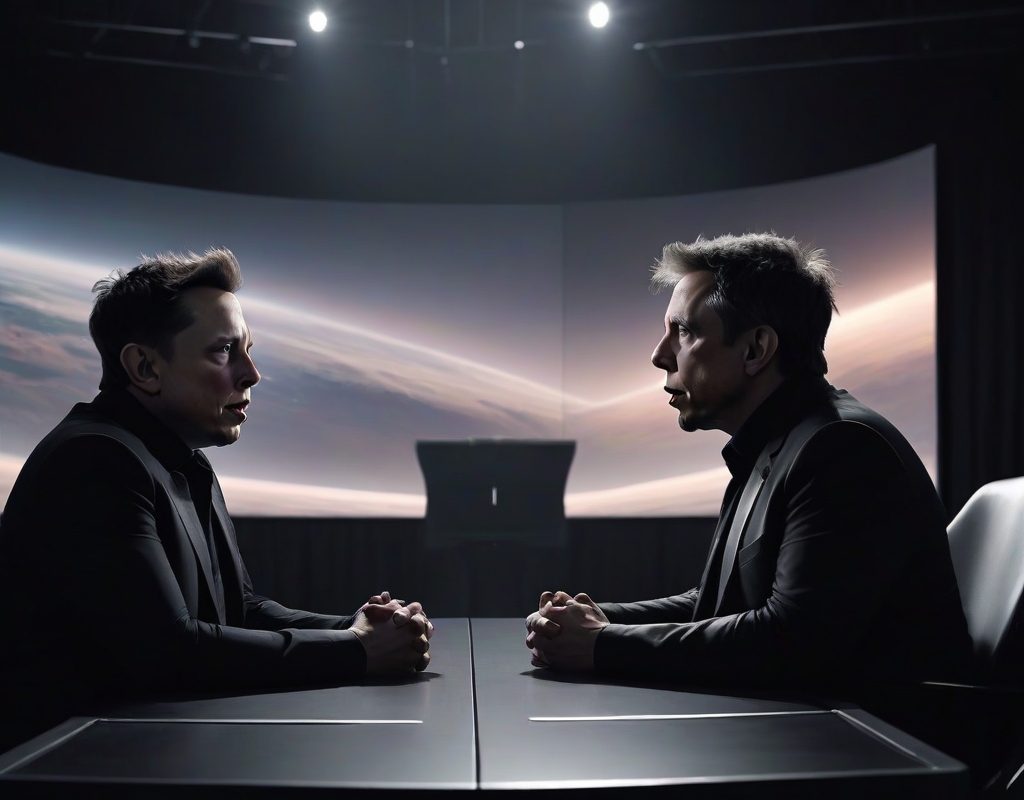Elon Musk, the celebrated pioneer behind Tesla and SpaceX, finds himself embroiled in a serious backlash following comments made against actor and director Ben Stiller. This controversy emerges over Musk’s use of derogatory language tied to a scene from “Tropic Thunder,” a film featuring Stiller which satirizes Hollywood and its culture. The use of such disputed language by Musk has provoked a widespread outcry, emphasizing the need for sensitive and respectful public dialogue.
The specific incident occurred when Musk referenced a particularly controversial aspect of “Tropic Thunder,” which has been critiqued for its bold and sometimes contentious humor. Musk’s choice of words, seen as offensive and regressive even within the boundary-pushing context of the film, garnered significant negative attention across multiple fronts.
The public reaction was instantaneous and strongly critical. Social media platforms turned into arenas of disappointment and disapproval from users and celebrities alike. Voices across Twitter and Reddit accentuated the inappropriateness of Musk’s remarks, highlighting a societal shift towards language that respects all community members. One notable instance on Instagram saw a user expressing dismay at Musk’s language choice, arguing that such words have no place in today’s refined and inclusive societal dialogue.
The response included significant criticism from influential mental health and disability rights organizations. These groups, such as the National Alliance on Mental Illness, underscored the impact of Musk’s words, emphasizing how influential figures can perpetuate stigma and hinder the progress towards inclusivity.
Elon Musk is no stranger to the spotlight, often for reasons extending beyond his innovative enterprises. His online interactions frequently stir debate, drawing both critique and praise. In the broader context of his public dealings, this incident aligns with a pattern of provocative communication that often overshadows his technological contributions.
Adding depth to the controversy is the nature of “Tropic Thunder” itself—a film that since its 2008 release has sparked varied academic and public debates over the limits of satire and comedic portrayal. Ben Stiller, in past discussions, defended the film’s approach that aims to critique rather than reinforce Hollywood clichés. However, the nuances of this debate were overshadowed by Musk’s recent comments, bringing to the forefront ongoing discussions concerning suitable public discourse.
This episode prompts important considerations around corporate conduct and the responsibility of business magnates like Musk in moderating their public interactions. As highlighted by Professor Susan Henley from Stanford University, people in Musk’s position wield considerable influence that can shape social norms and expectations. Their communication must, therefore, reflect thoughtfulness and respect.
This controversy also casts shadows on Musk’s broader public and corporate persona. Already scrutinized for various other criticisms—ranging from Tesla’s labor conditions to his responses to union activities—this incident adds to the narrative of Musk’s sometimes turbulent public relations strategies and could potentially impact investor confidence as suggested by analysts at Dunn Financial.
The call for a formal apology is loud and clear, extending from Hollywood to the business sector. Industry figures and public voices alike stress that a sincere apology can affirm Musk’s commitment to positive societal impact and respectful engagement. The emphasis is on realizing the profundity of one’s influence and acknowledging the weight of words spoken.
As the events unfold, it is pivotal for effective leadership to embody not just business acumen but empathetic and inclusive communication. Public figures have the unique capacity to champion social improvements or, conversely, to impede progress through careless rhetoric. This situation with Musk serves as a critical reminder of the delicate balance of power and responsibility.
In reflection, the implications of Musk’s words transcend just a fleeting controversy; they stir fundamental questions on the ethical responsibilities of public discourse in contemporary society. How industry leaders like Musk respond to these challenges could fundamentally alter public expectations not just for them but across the leadership spectrum in various fields. The resolution of this issue may well set precedents for how influential figures engage in public discussions, intertwining freedom of expression with a concerted awareness of social impact and responsibility. These are lessons and reflections crucial for anyone in the limelight, where words can indeed be as influential as actions.




